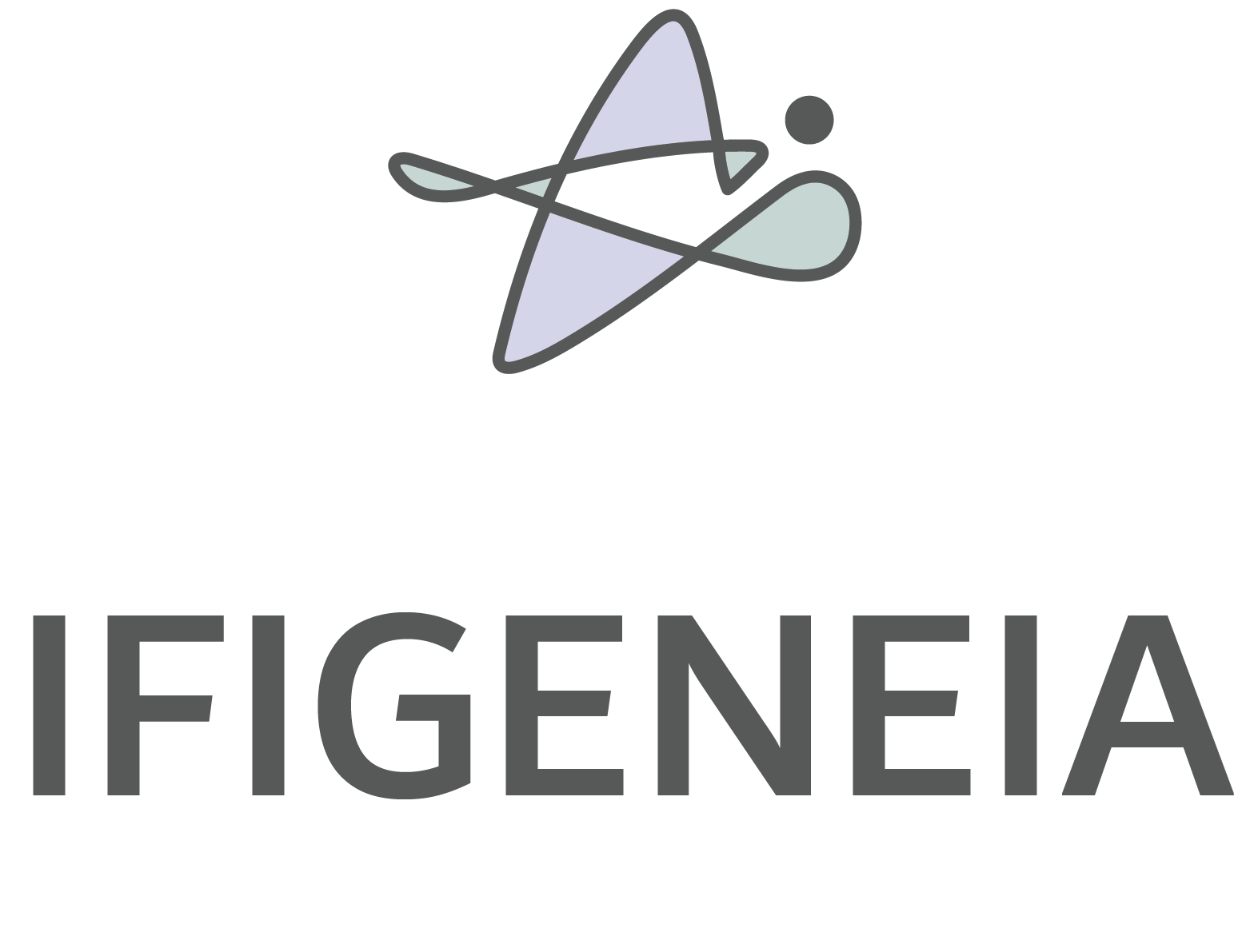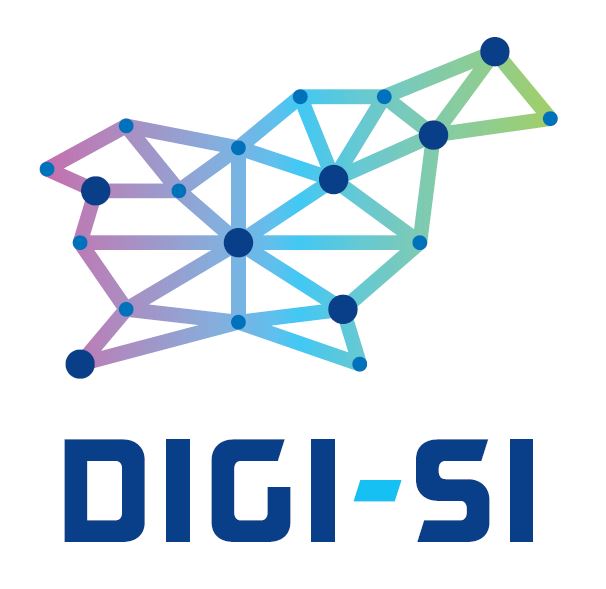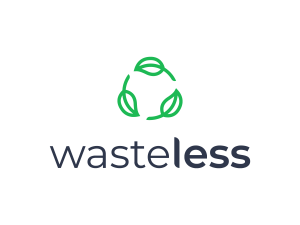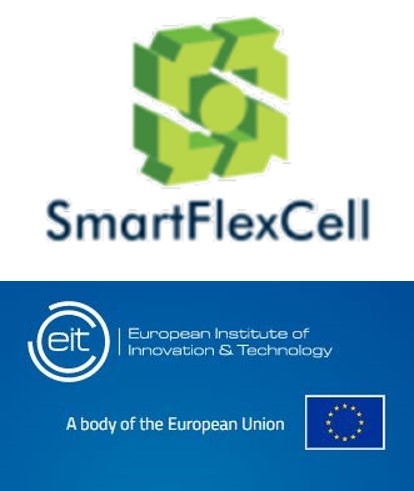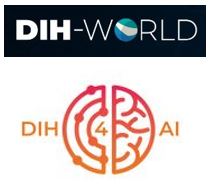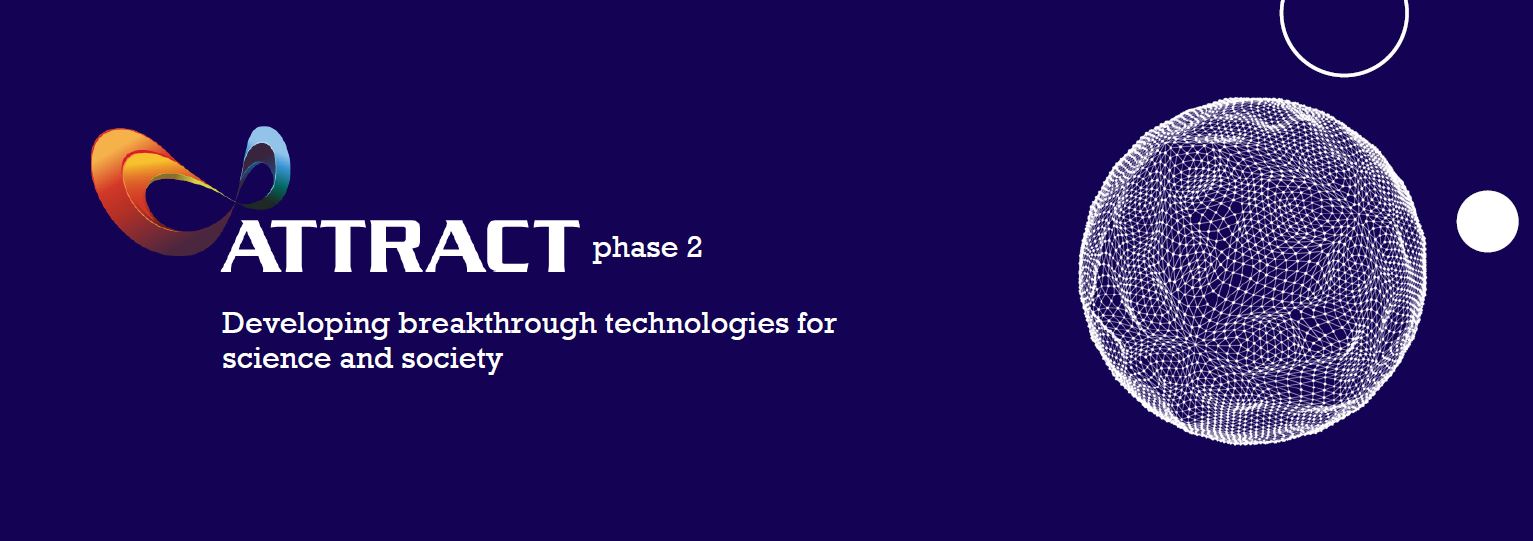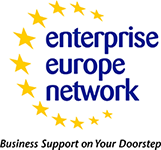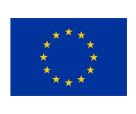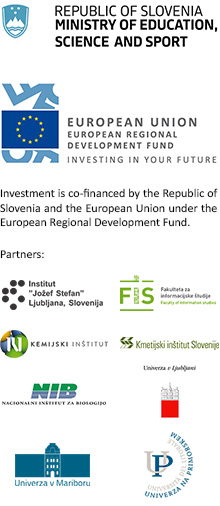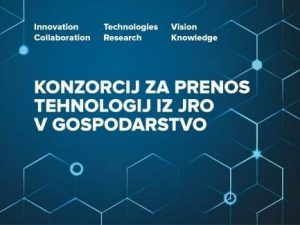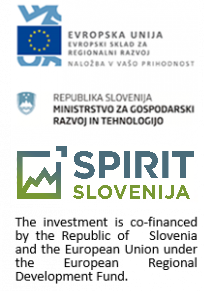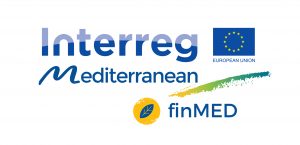On-going Projects
KTO3 – Consortium of Knowledge Transfer Offices at 10 Public Research Organisations (PROs)
DIGI-SI – European Digital Innovation Hub
WASTELESS – Waste Quantification Solutions to Limit Environmental Stress
SmartFlexCell – Robot-Aided Reconfiguration Solution for Variable Small Serial Production
DIH4AI AI-Opt-IoT – AI-Supported Route Optimization Based on the IoT Solution
EEN – Enterprise Europe Network
EURAXESS – Researchers in Motion
PETVISION – Next Generation Limited-Angle Time-of-Flight PET Imager
STEIDA – Strengthening Technology Transfer Ecosystem through Innovative and Digital Approaches
On-going Projects
 |
KTO3 – Consortium of Knowledge Transfer Offices at 10 Public Research Organisations (PROs)
The Knowledge Transfer Office Consortium (KTO) connects knowledge transfer offices from ten public research organizations (PRO): Jožef Stefan Institute (IJS), Faculty of Information Studies in Novo mesto (FIŠ), Geological Survey of Slovenia (GeoZS), Institute of Metals and Technology (IMT), National Institute of Chemistry (KI), Agricultural Institute of Slovenia (KIS), National Institute of Biology (NIB), Rudolfovo – Science and Technology Center Novo mesto (Rudolfovo), Slovenian National Building and Civil Engineering Institute (ZAG), and Science and Research Centre Koper (ZRS KP). The project strengthens existing KTOs, establishes new KTOs, and enhances collaboration among stakeholders in the innovation ecosystem. The goals include the protection and commercialization of intellectual property, strategic patenting, commercialization of inventions, and raising awareness about intellectual property. In collaboration with the KTO consortium of Slovenian universities, we plan activities for promotion, networking, exchange of best practices, and development of competencies, which will accelerate the processes of protecting and commercializing intellectual property. The project will contribute to the innovative transformation of the Slovenian economy in line with the Smart Specialization Strategy 2030 (S5). The operation is co-financed by the Republic of Slovenia and the European Union from the European Regional Development Fund. |
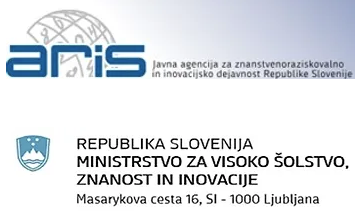 |
CRP IL – Analysis of the Support Environment for Effective Management and Exploitation of Intellectual Property in Slovenia
The objective of the research project is to analyze and improve the support environment for intellectual property (IP) in Slovenia. The project is divided into five work packages (WPs). First, we aim to gain a comprehensive insight into the current state of IP management and exploitation in Slovenia, review existing studies in this field, and conduct several analyses in the area of industrial property. Next, we will carry out an empirical study to assess the needs of IP creators (researchers, developers, inventors, and other authors of intellectual works) and the role and competences of supporting organizations. Furthermore, we intend to review best practices of intellectual property management in different countries, which will contribute to the development of strategic models for standardized management and use of IP in Slovenia, tailored to key stakeholders such as universities, research institutes, and companies. |
 |
CRP ISERO – Framework for Self-Evaluation of Research Organisations in the Field of Knowledge Transfer
The main objective of the project is to prepare proposals for frameworks and recommendations for self-monitoring and further evaluation (i.e., a valorization metric) of research organizations in their efforts to support the development and strengthening of knowledge transfer into practice in Slovenia. |
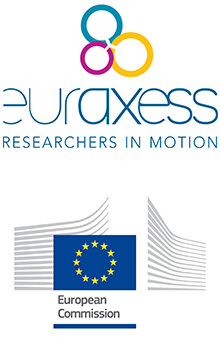 |
EURAXESS – Researchers in Motion
EURAXESS is a European Research Area (ERA) initiative providing access to a complete range of information and support services for European and non-European researchers wishing to pursue research careers in Europe. It offers access to the job market; assists researchers in advancing their careers in another European country and supports research organisations in their search for outstanding research talent. EURAXESS is a truly pan-European initiative, supported by 40 participating countries across Europe. Researchers can find updated information on job vacancies, funding opportunities and fellowships throughout Europe. Posting their CV will allow recruiters to find them. Furthermore, companies or research institutes can post vacancies free of charge and search for CVs of international top-notch researchers. The Center for Technology Transfer and Innovation at the Jozef Stefan Institute acts as a EURAXESS contact point in Slovenia. |
 |
SPOZNAJ – Adaptation of Public Research Organisations (PROs) and the Central Technical Library of the University of Ljubljana to Work According to the Principles of Open Science
As part of the project “Support for the Implementation of Open Science Principles in Slovenia” (SPOZNAJ), which has been selected for funding in the public tender of the Recovery and Resilience Plan titled “Adaptation of Public Research Organizations and the Central Technical Library at the University of Ljubljana to Operate According to the Principles of Open Science,” the Central Technical Library at the University of Ljubljana and twenty public research organizations will align their operations with ReZrIS30, ZZrID, and the Decree on the Implementation of Scientific Research in Accordance with the Principles of Open Science. This alignment will ensure that their operations comply with the provisions regarding open science in the European Research Area. The project partners will conduct training sessions for various open science stakeholders, provide specialized training on handling FAIR and open-access research data, prepare a handbook on open science, and establish support mechanisms for open science within their respective organizations. |
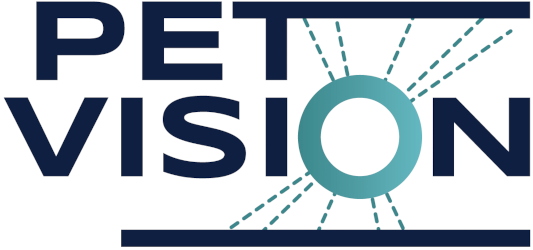 |
PETVISION – Next Generation Limited-Angle Time-of-Flight PET Imager
In 2020, over 2.7 million people in the EU were diagnosed with cancer, with projections indicating a 24% increase by 2035, making it the leading cause of death. Despite Positron Emission Tomography (PET) being the most sensitive diagnostic technique for cancer, the high cost of producing PET scanners limits accessibility to fewer than 0.5% of medical centres globally. The PetVision project seeks to transform this landscape by developing a cost-effective, modular PET device with superior timing resolution. The project aims to translate European technological breakthroughs into a revolutionary, fully modular, cost-accessible range of devices for broad applications, from standard PET centres to mobile units. Through innovations in detector design, photo-sensors, and electronics, PetVision aims to significantly improve human health by making high-quality PET imaging available in diverse clinical settings. |
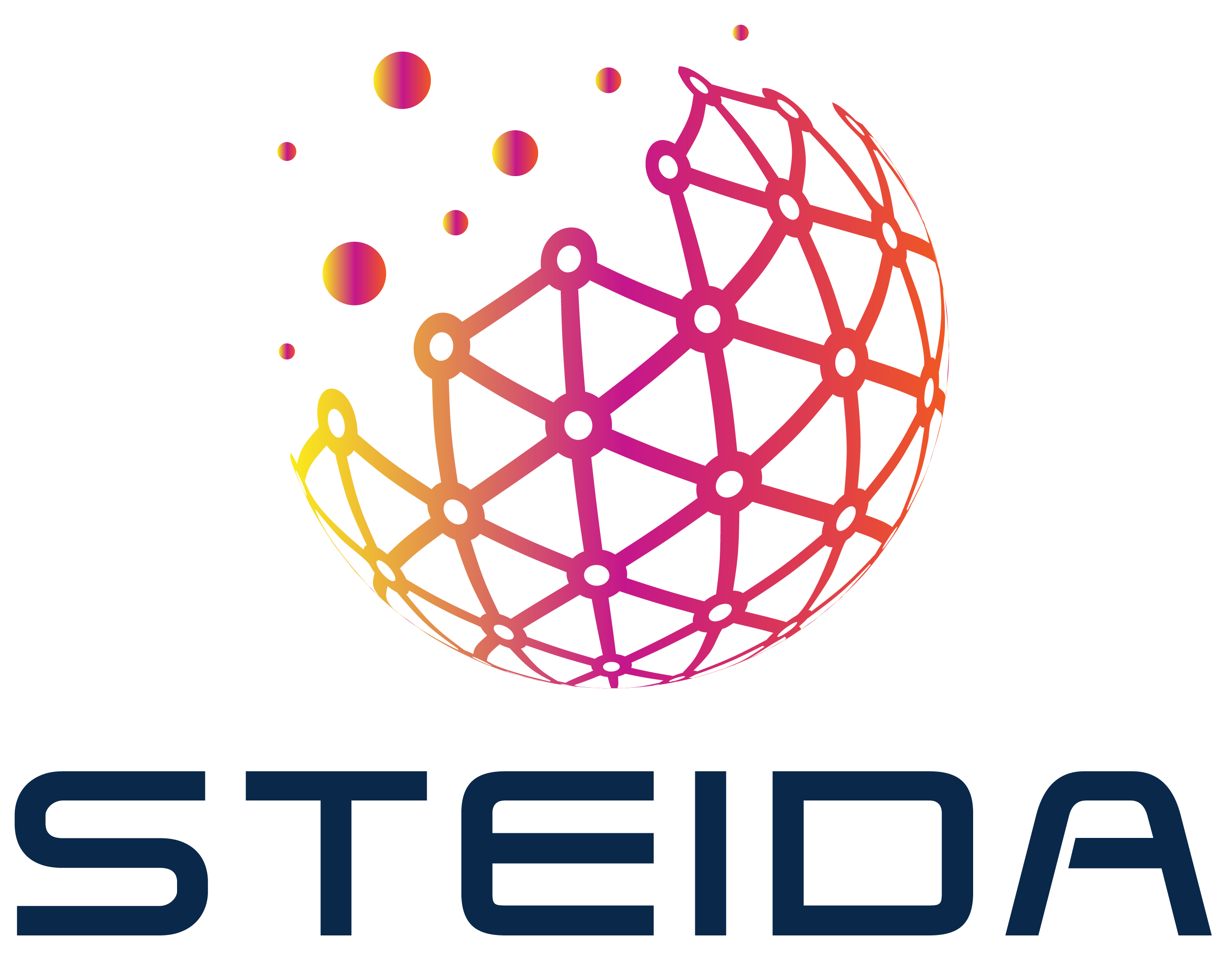 |
STEIDA – Strengthening Technology Transfer Ecosystem through Innovative and Digital Approaches
The aim of STEIDA project is to strengthen technology transfer ecosystem through an innovative and holistic approach which will foster national and international collaboration among universities, academic staff, businesses, students, entrepreneurs and other stakeholders by developing/using digital platforms and networks. The project will also contribute to close the gap between academia and industry through providing students with new competencies. |
Past Projects
 |
KET4CleanProduction
Within the KET4CleanProduction project we are building a pan-European access for manufacturing SME to technical services for clean production through a Network of premier KET Technology Centres with one stop shop access including EEN and discourse with policy makers on the Smart Specialisation Strategy programme RIS3. In collaboration with other European institutions with KET (key enabling technologies) competences in the field of clean production we will support selected PRO-SME test projects using the PRO infrastructure. The Jozef Stefan Institute is registered as a KET Center and represents a connecting point between Slovenian institutions with KET competences. |
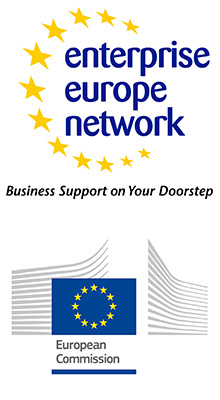 |
EEN WE4SME
Within the EEN We4SME project we carry out two types of services: (1) support to companies that have obtained the SME Instrument project for selection of a coach, and (2) evaluation of the innovation management / innovation environment in companies, for which two types of certified tools are being exploited: the IMP3rove and the SMEMPower surveys. Project activities aim at improvement of the innovation potential in companies. |
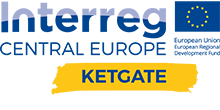 |
KETGATE
The availability of technological infrastructure varies greatly amongst the countries in Central Europe. Within the KETgate project we are helping to build up a comprehensive overview of technology services and the R&D infrastructure of public research organizations (PROs) in the Central Europe area. This database will serve as a major information hub to help bridge the gap between small and medium-sized enterprises, and the so-called key enabling technologies (KET) in the region. The goal is to establish an overview of PROs’ services, establishing the supply on a supra-national level for the SMEs in the region and thus bridging the gap to enable SMEs across Central Europe to access high level technological services. The Jozef Stefan Institute is registered as a KET Center and represents a major connecting point between Slovenian PROs with KET competences. |
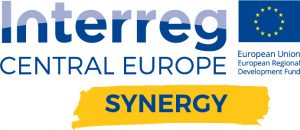 |
SYNERGY
Within the SYNERGY project, we are carrying out a large-scale analysis of previous research projects’ results with the goal of distinguishing three project groups covering three key areas of industrial technology: 1. Additive Manufacturing & 3D-Printing (laser technologies, lithography, Inkjet, FDM, printing technologies); 2. Micro- & Nanotechnology-related Processes & Materials (Nanoparticle-filled materials, novel nanomaterials, knowledge management & databases for micro- & nanotechnology-related processes & materials, OHS issues related to nanosafety); and 3. Industry 4.0 (decentralised or customised production, production assistance systems, Human-machine interface, tailor-made products). The goal is to analyze existing know-how from finalized research projects, set up an active connection among regional and trans-sectorial actors, and develop a Synergic Crowd Innovation Platform for supporting open innovation. |
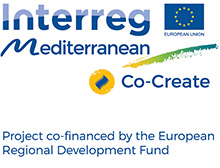 |
Co-Create
Within the Co-Create project, we help increase competitiveness of traditional clusters (mechanical, building, furniture) by cross-innovation actions involving creative sectors to define new products and services according to social trends (particularly demographic changes, climate changes and environmental risk) and the main technological trends (particularly social technologies, robotics, cloud, design, etc.). This is achieved, among other approaches, by way of gamification – introduction of computer game design elements into areas where such concepts are not developed. |
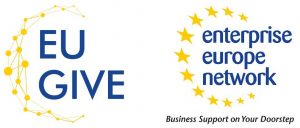 |
EU-GIVE
Within the EU-GIVE project we help upgrade European projects that support open science, knowledge exchange, research and innovation. Main topic of the project is the acceleration of transfer of knowledge into industry. The goal is to improve and optimize collaboration between social economy actors in Slovenia, in the fields of collaborative consumerism, production, learning, finance, and transfer of collaborative / sharing principles into traditional companies. |
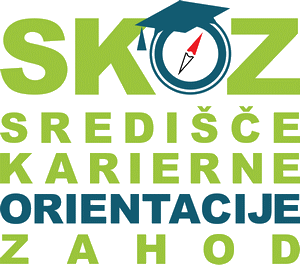 |
SKOZ
The SKOZ project (Center of Career Orientation West) promotes work with gifted students and is committed to their quality career orientation. The project, coordinated by the Gimnazija Vič, establishes a solid and functioning network of schools from the Western Cohesion region, research organizations and business partners, who will use projects to encourage the most talented students. The Jožef Stefan Institute, as a research partner in support of individual or group research projects, offers mentoring for research work of secondary school students. |
 |
DIHelp Within the DIHelp project, the Digital Innovation Hub (DIH) Jožef Stefan Institute joins a coaching and mentoring programme led by professionals in the field of business development, access to finance, and innovation management. In form of individual mentoring and webinars we receive knowledge that allows for a complete support to predominantly small-to-medium-sized enterprises. A regional workshop is planned within which companies are given the opportunity to receive consultation in the aforementioned fields |
 |
EEN Scale-up
In the EEN Scale-up project, Slovenian SMEs with rapid growth potential (i. e., scale-up companies) are identified. These are companies with high growths of revenue and number of employees in several consecutive years. We support scale-up SMEs by removing most common barriers to fast growth, indicated by (i) Recruiting people with the skills and ambition for technical and business roles, (ii) Developing business leaders with the ability to manage rapid growth, (iii) Selling to large companies and government, entering new markets and gaining regulatory approval for new products, (iv) Attracting appropriate growth capital, (v) Accessing research and development facilities and finding suitable premises. The services are provided in a form of business coaching and/or individual advisory support. |

|
SCICHALLENGE
Science education is crucial for shaping the present and future of modern societies. Thus, the EU needs more talented young people to increase its creativity and competitiveness. This is especially true in the STEM subjects (Science, Technology, Engineering and Mathematics). However, the enrolment rates in STEM-based degree programs are low. This will ultimately lead to a workforce problem in European industries and especially in many of the new member states. The SciChallenge project seeks to address this issue by developing novel concepts for getting young people excited about science, education and careers in the STEM-fields. |
| INPRO
Within the INPRO project, the involved partners want to peer review IPR support programmes for SMEs in order to improve their knowledge and attitude towards this important topic as well as to transfer good practices into regional/national programmes. Using the Twinning Advanced methodology, the Design Options Paper (DOP) on IPR services to SMEs will be elaborated in order to be at disposal for other innovation agencies to design and/or deliver similar IPR services. Professional experts with extensive knowledge and experience on IPR and on creative moderation methodologies will be subcontracted to moderate the two peer learning workshops in order to achieve the highest quality results. The peer learning group will be composed by 12 persons from the 3 Regions/Country involved (Friuli Venezia Giulia region – Italy; Spain; Slovenia). The aim of the working group will be to strengthen the IPR support services and programme design through the application of the Twinning+ methodology. |
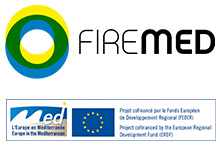 |
FIREMED
Energy sector SMEs in MED area are considered a strategic development asset for the area due to abundance of renewable energy resources available and the increasing demand of energy coming from the industrial sectors and urban developments. The link between energy sector SMEs and sustainable development is clear to all actors working for the economic development of MED countries. The objective of the project is to approach both Local and Regional Authorities, and Financial Operators in charge to support energy sector SMEs development, proposing innovative financial instruments for in Local Development plans, innovative services and improving matching between SMEs in search of financial means and Investors. The project will consider the financial situation of many countries and the need to balance the public support of Energy sector through strengthening cooperation between private and public institutions. |
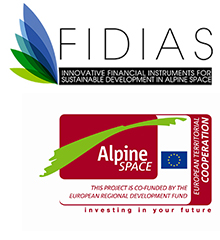 |
FIDIAS
In the context of the international economic crisis, and dramatic pressure on public funds, green-technology small and medium sized enterprises (SMEs) are experiencing increasing difficulties when seeking financial support from market sources. The FIDIAS project aims to develop innovative financial instruments and services to support local and regional authorities (LRAs), business investment operators and green-tech small and medium sized enterprises to avail of the opportunities of financial tools. By highlighting the importance of increasing local development actions, the FIDIAS project will reinforce local development policies, the attractiveness of the Alpine Space for transnational financial operators and innovation processes. Based on the exchange of experiences, best practices and territorial cooperation, FIDIAS will provide, through a bottom-up approach, a framework to help local and regional authorities and small and medium sized enterprises take the lead on eco-innovation and smart growth issues. |
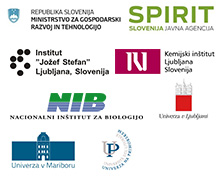 |
Consortium for technology transfer / KTT (2013-2014)
Six major Slovenian public research organizations, Jožef Stefan Institute, National Institute of Chemistry, National Institute of Biology, University of Ljubljana, University of Maribor and University of Primorska, have established a consortium performing the activities of technology transfer in the Slovenian public research organizations in years 2013 and 2014. Consortium which presents support environment is led by the Center for Technology Transfer and Innovation at the Jožef Stefan Institute and is co-financed by the Ministry of economic development and technology through the public agency SPIRIT Slovenia. |
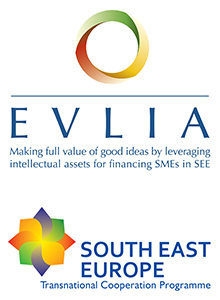 |
EVLIA (2012-2014)
The main goal of EVLIA project is developing a dedicated methodology for the financial and economical evaluation of Intangible Assets of SMEs in strict agreement with financial stakeholders and intermediaries. Main topics of the project are:
|
 |
Central Community (2012-2014)
Innovation is the driver for enhancing competitiveness in European SMEs. But its application still presents access barriers, especially in the Life Science industry, where R&D costs are high and information sharing needs many efforts. ICT technologies offers a valuable instrument to overcome those barriers, and to bring different actors to interact and work together: the creation of communities, interacting through an advanced ICT platform, leads to the generation of a collective knowledge and a collaborative approach, that can bring to new product development and new collaboration models. Central Community project wants to enhance framework conditions for collaborative innovation among the European Life Science actors, by providing two key elements in support of innovation:
|
 |
TIPS (2012-2014)
Transport is one of the main factors of economic sustainability and growth, but increasing demands in that sector call for pro-active procedures in order to get more innovative solutions quicker into the market. A lot of funding goes into transport RTD, but RTD results do not reach the market accordingly. What is needed are good practices for the different transport modes, to see which exploitation channels are working, where to find financing and first users and how to access new markets. Thus, the objective of the TIPS project is to produce better innovation in the transport sector by enhancing the capacity of EU-funded FP projects in the field of transport to be at the source of innovation and to help them transform research results into products and services. Excellent research, but insufficient valorization? The case of the European Transport Research in the 7th Framework Programme (note: article is accessible only from IP addresses within the Institute’s network). |
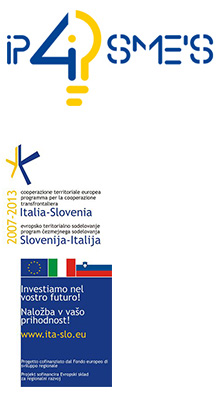 |
IP4SMEs (2012-2014)
The purpose of Slovene-Italian cross-border project IP4SMEs, joining 12 organizations from both countries, is establishing a network of knowledge and services for protection and exploitation of intellectual property. In the course of the project, tools and activities will be developed in order to improve offered services and increase competitiveness and awareness of entrepreneurs and companies in the field of business based on intellectual property. |
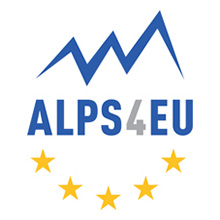 |
Alps4EU (2011-2014) The project addressed both policy making and cluster management activities, with a trans-regional approach and had impact on phase 2 and 3 of the policy cycle in order to:
Specifically, Alps4EU mapped Alpine Area clusters strategic priorities, developed guidelines and proposals for joint programming activities, elaborated a Joint Action Plan including common funding opportunities for clusters, fostered transnational technology transfer activities, promoted inter-cluster activities for innovation, promoted Alpine Space clusters at EU level. |
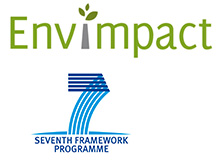 |
ENVIMPACT (2011-2013)
The goal of ENVIMPACT project was enriching the European knowledge collection with the results of Central and Eastern European researchers on the topic of environmental protection. In this respect, ENVIMPACT project aimed at establishing new cooperation within FP7 programs, which could lead to innovative solutions for sustainable environmental protection. |
 |
Slo-Inno-Boost (2010-2012)
In the course of Slo-Inno-Boost activities the partners on the Enterprise Europe Network strengthened their recognisability and presence amongst the Slovenian entities of business supportive environment. In two years they have co-organized two major events and 24 regional events, where they, together with local supportive players, arranged for activities helping the companies seize the European opportunities. |
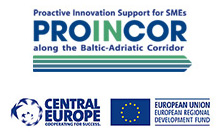 |
Proincor (2010-2012)
The aim of Proincor project was to improve the innovation force of small and medium-sized enterprises. This was achieved by cooperating with the regional and national innovation and technology centers, universities, research institutes, universities of applied science and business developers. The vision of the project was to reduce economic disparities between the regions which were east and west of the former iron curtain, at the same time laying the foundation for a development corridor characterized by innovation. |
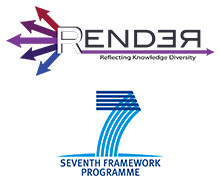 |
RENDER (2009-2012)
Project RENDER was established to provide a comprehensive conceptual framework and technological infrastructure for enabling, supporting, managing and exploiting information diversity in Web-based environments. It has helped to realize a world where information is acquired and shared in a fundamentally different manner than the consensual approach promoted by movements such as Web 2.0, and where communication and collaboration across the borders of social, cultural or professional communities are truly enabled via advanced Web technology, supporting one of the credos of European society: “United in diversity”. |
 |
COSMOS (2008-2012)
The goal of project COSMOS was to establish a network of National Contact Points for the Space theme under the EU’s 7th Framework Programme for Research & Innovation. The objective of the project was to build a network of Space NCPs. The participating NCPs have identified and exchanged good practice, elaborated and conducted training courses for the NCP staff, gathered and provided up-to-date information on Space and neighboring topics, improved project partner search and developed common concepts to raise awareness for Space in FP7 and the Space NCPs. |
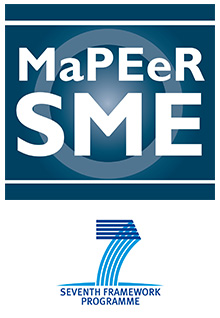 |
MAPEER (2009-2011)
The MAPEER SME project was supporting activities to create the background conditions in which Research, Development and Innovation (R&D&I) is welcomed, supported and nourished in European SMEs. The ultimate goal was to increase the participation of SMEs in the EU research programs, by improving the conditions for participation and overcoming the barriers for innovation activities. |
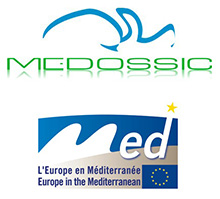 |
MEDOSSIC (2009-2011)
In the course of MEDOSSIC project ten partners from seven countries cooperated to improve competitiveness, promote regional collaboration and environmental protection and encourage eco-innovative sectors of specific regions. Key activities of the project were analysis of existing state and overview of good practices, development of strategic and operative plans for establishing regional pilot structures, advising and education with intention of effective execution of measures. |
 |
KidsINNscience (2009-2013)
Innovation in Science Education – Turning Kids on to Science has developed adaptive strategies to facilitate innovation of curricula and teaching and learning of science and technology (S&T) in formal and informal settings. The overall aim was to enhance the interest of young people in S&T and in science careers. Diversity and inclusiveness, gender equity and activity based and learner centered approaches were explicitly taken into account throughout the whole project. |
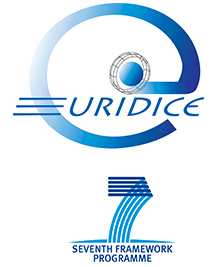 |
Euridice (2008-2011)
TEuridice was an Integrated Project funded by EU’s Seventh Framework Programme ICT for Transport Area. The basic concept of Euridice was to build an information services platform centred on the individual cargo item and on its interaction with the surrounding environment and the user. The EURIDICE project had the following main objectives:
|
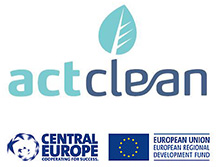 |
ActClean (2008-2011)
The Act Clean project supported Small and Medium Enterprises (SMEs) throughout Central Europe to implement eco-efficient production processes. It promoted environmental technologies and management systems by connecting demand and supply: it provided SMEs with technological and managerial know-how on one side and it facilitated the marketing of already existing solutions on the other. |
 |
KTT 2011 (2011) KTT 2010 (2010) Performance of a RTD Technological Audit of the ICT RTD in Slovenia (2009-2010) KTT 2009 (2009) Research on the state of innovation activities in Slovenia with improvement suggestions for stimulating competitiveness and innovation in Slovenian economy (2009) Tinis (2005-2008) R4R (2007-2008) Boost-IT (2006-2008) Lean TTT (2006-2008) Innovation Relay Centre of Slovenia (2004-2008) New Product Development (2004-2007) |
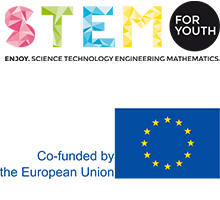 |
STEM4YOUTH
There is a growing skill gap between what is provided by higher education and what is needed in the EU job market. The focus of the STEM4YOUTH project is to (i) Identify the STEM (Science, Technology, Engineering, Mathematics) skills that are most required for future jobs and improve them through our educational offer, and to (ii) Accustom society, in particular young students, to recognize and appreciate the STEM concepts that occur in our everyday life without us noticing. Within the project, we help in constructing individual teaching programmes in natural science and technology subjects in high schools with the goal of envoking appreciation for the STEM concept among pupils. At the Jozef Stefan Institute, chemistry programmes are being developed, and tested in Slovenian high schools, for this purpose. |
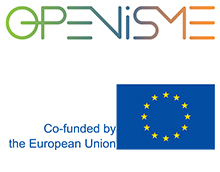 |
OPENISME
In the face of economic challenges SMEs are widely recognised as potential engines of growth that have the necessary attributes of agility, flexibility and technological innovation. It is also recognised that they find it exceptionally difficult to mobilise the resources needed to help them bring breakthroughs to market quickly, costing time and money and inhibiting economic growth. |
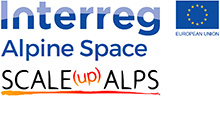 |
SCALE(up)ALPS
The SCALE(up) Alps project brings together six countries from the Alpine Space: Slovenia, Italy, Austria, Switzerland, Germany, and France. These diverse regions all share a high innovation potential. By establishing the Alpine Space as an innovative hub on the international level, it will attract startups, and through this, the economy in the region will improve. The main aims of the SCALE(up)Alps project are to foster the scaling up of the Alpine Space startups and to brand the region as a cooperative area for innovative businesses and job creation. The project is about improving funding opportunities, finding the talent and a skilled workforce, developing leadership and facilitating access to markets. The SCALE(up)ALPS project is funded by the European Union under the Alpine Space programme, which is an European transnational cooperation programme for the Alpine region for 2014-2020. The total budget of the project, which will last 30 months, is 1.793.944,00 EUR (ERDF: 1.424.602,00 EUR). |
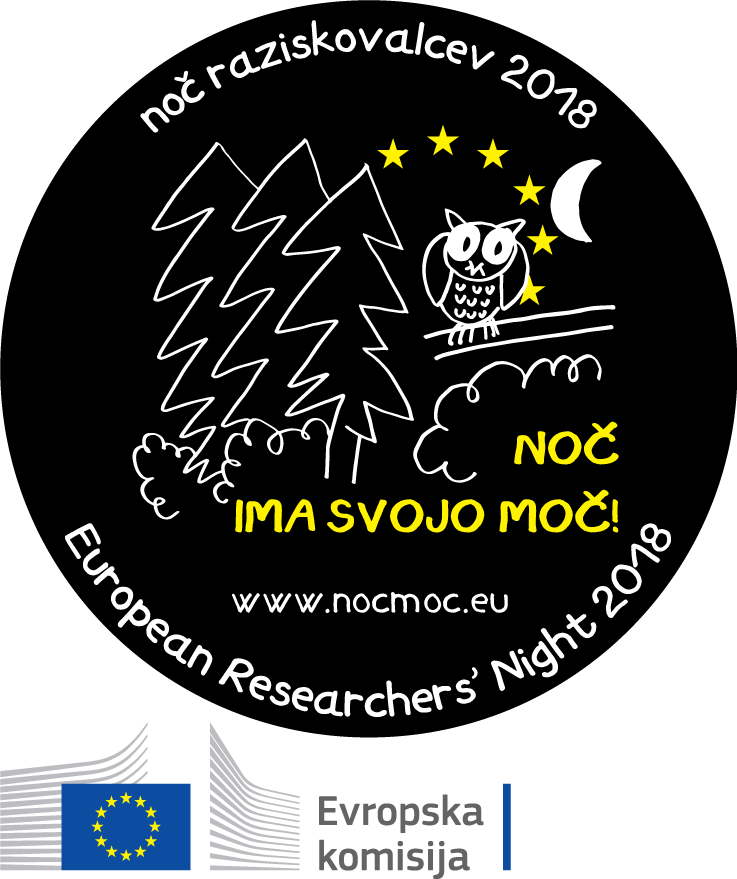 |
The night has its might (2018-19)
The consortium of partners Ustanova Hiša eksperimentov, Institut »Jožef Stefan«, Kemijski inštitut and Tehniški muzej Slovenije created the project “The Night has its might”. The aim of the project is to design a set of activities to be carried out in an all-European action European Researchers’ Night, in the years 2018 and 2019 (Friday, September 28, 2018 and Friday, September 27, 2019). On the researchers’ night all across Europe doors of science and research organizations will be open to welcome the general public, to whom the profession and life of a scientist will be presented. |
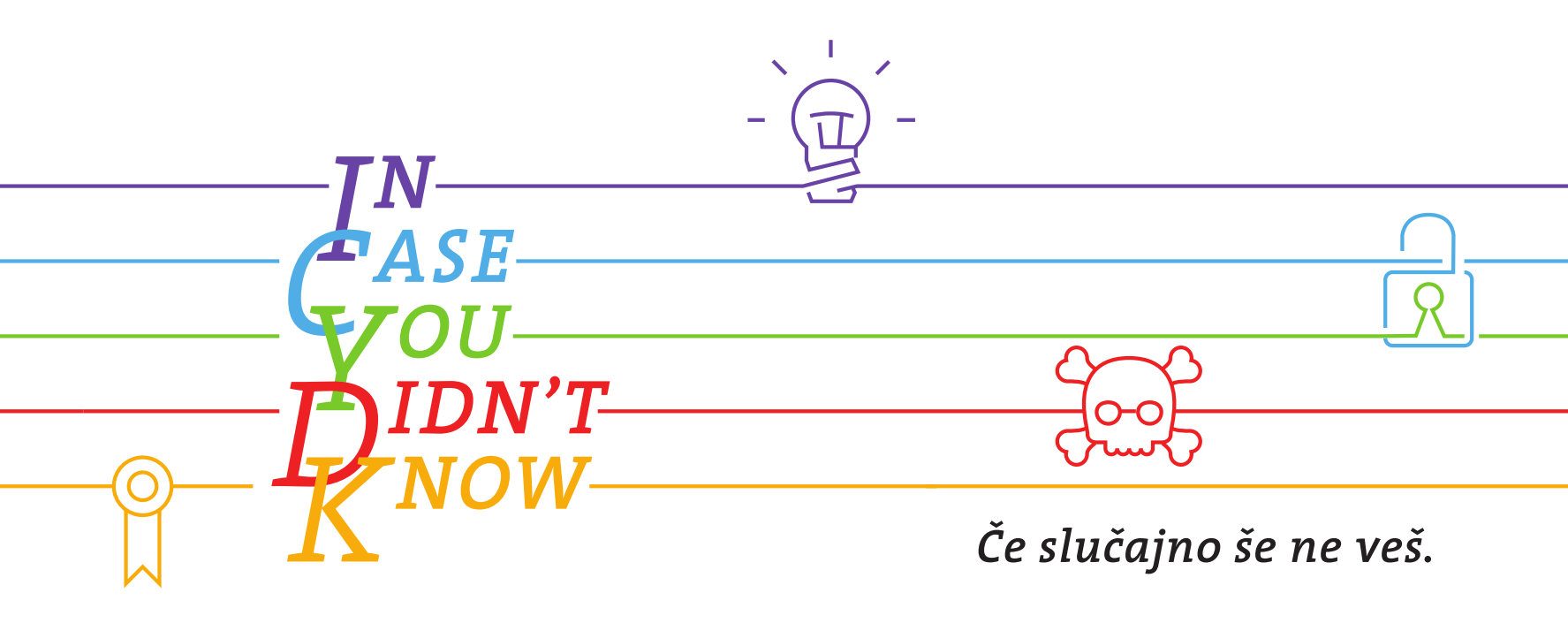 |
ICYDK – In case You Didn’t know
The ICYDK – “In Case You Did Not Know” project that is carried out by the Technical Museum of Slovenia with the help of the European Intellectual Property Office, is aimed at raising awareness among young people about the importance of intellectual property, as analyses have shown worrying trends among young people in the relationship and perception of this topic. The Jožef Stefan Institute participates in proactive educational activities to show the consequences of abuse and, on the other hand, the positive effects of respecting copyright and other related rights. |
In case of any questions write us at tehnologije@ijs.si. We will be glad to help you!


